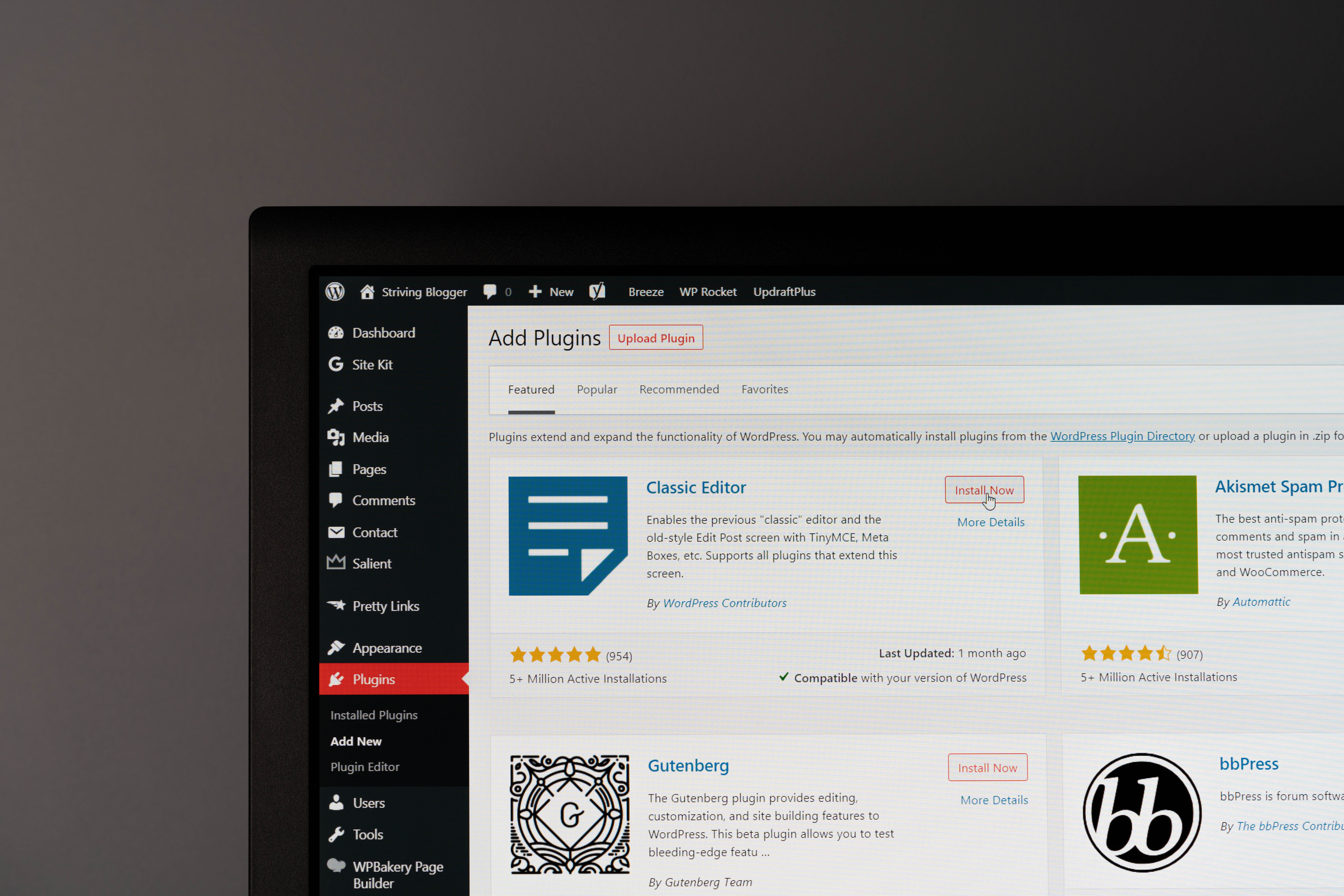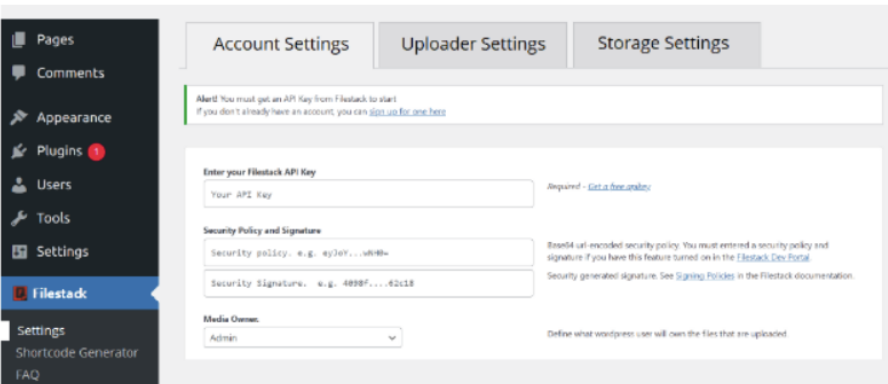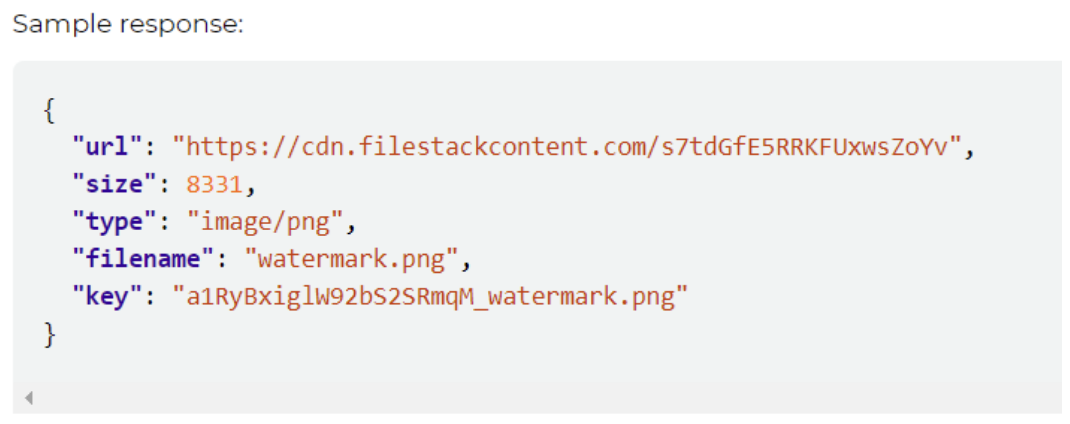Secure File Uploads: Why WordPress Needs Virus Scanning
7 min read
Do you want to upload files for your WordPress website from different sources without having any issues? Secure file upload is essential for any content management system, including WordPress websites. If the uploaded files contain threats to the website, it will directly impact the website’s security. To prevent these threats when uploading files, we need to take some security measures. Therefore, it is essential to have a reliable virus-scanning solution for a secure WordPress website. For that, we can use a file virus scanner to scan files.

Understanding File Virus Scanning
File virus scanning is a process of identifying trojans, viruses, malware, and other malicious threats and blocking malicious file uploads to your WordPress website. This is useful to identify and remove any files containing viruses, malware, or any type of malicious software from your devices. It involves specialized software and scanners.
A file virus scanner is responsible for scanning all files in the system. When a user uploads a file, it’s verified by the file virus scanner, and infected files will be deleted. Once the scan process is completed, a notification will be shown and/or sent to the user via email.
It is a valuable security measure to protect both WordPress sites and their visitors from security threats. Taking the necessary steps will help to prevent virus threats, malware infections, data breaches, and unauthorized access and maintain a safer and more trustworthy experience for your website visitors.
Challenges in WordPress File Handling
Although WordPress is a popular choice among developers, there can be challenges when handling files.
- Security – This is a common and major problem for any WordPress website when handling files. Users try to upload files with harmful content, purposely or not. This harmful content will lead to virus or malware infections and unauthorized access. Therefore it is essential to take proper security measures.
- File Access Control – Access permissions should be granted based on user roles. These permissions provide access to upload, edit, download, and modify files on your WordPress website. However, managing multiple role-based permissions will make your website more complex.
- Large File Handling – Uploading and managing large files like videos or images, can impact a website’s overall performance. to prevent this, we can provide upload limits.
Introducing Third-party File Virus Scanning Tools
There are many third-party virus scanning tools you can use to overcome above mentioned challenges. While some of these are desktop software, others are cloud-based software. Filestack is one of the solutions you can use for your WordPress website’s file handling. It offers various tools and APIs to handle files in web applications. To learn more, see how we can do secure file uploads with Filestack.

Implementing Third-Party Virus Scanning in WordPress
There are numerous third-party plugins available that enhance the security of your WordPress site by adding virus-scanning capabilities.
Here are the general steps for installing and configuring a typical virus-scanning plugin.
Step 01 – Upload the Plugin
Search for the desired virus scanning plugin in the WordPress Marketplace or download it from the wordpress.org plugins page. Upload the plugin folder to the /wp-content/plugins/ directory.
Step 02 – Configure the Plugin
After installing, navigate to the plugin settings to adjust them as per your needs. Utilize any additional features the plugin might offer to enhance file security on your WordPress site.
Step 03 – Login to the Plugin Account
Some plugins may require you to log into a separate account or portal to access full features or sync data.
Step 04 – Find and Install through the Admin Console
Within the WordPress admin console, go to the “Add Plugins” section. Search for the desired plugin and click “Install Now”.
Step 05 – Activate the Plugin
After installation, click on “Activate” to ensure the plugin starts functioning.

Step 06 – Enter Required Credentials
Visit the settings page of the plugin. If it requires any API keys or credentials, ensure you enter them correctly. Some plugins offer a free tier or trial that can provide these credentials.

Another way to allow end-users to upload files is file upload with flask python. This method is suitable If you’re using Flask Python to build your web apps and want to learn about secure Python file upload.
Leveraging Third-Party Virus Scanning in WordPress
Virus detection is crucial when dealing with file uploads on WordPress platforms. A third-party virus scanning plugin can effectively detect infected content in files, ensuring the integrity of your website.
Such plugins are designed to rigorously scan every file upon upload, irrespective of its type. This means ensuring a secure upload process, whether it’s images, video files, or PDF documents.
Features of WordPress Plugins for Enhanced File Management and Security
Third-party virus scanning plugins often come integrated with advanced file management options and cloud storage connectivity. Here are some of the common features you might find.
- Cloud Integration: These plugins allow easy uploading of files to various cloud storage platforms. Many integrate seamlessly with popular services like Facebook, Instagram, Google Drive, and Dropbox.
- Multiple File Uploads: Users can upload several files simultaneously, improving efficiency and user experience.
- Integrated File Management: With such plugins, organizing and editing files directly from the WordPress dashboard becomes a breeze.
- Large File Support: Some plugins support large file uploads, accommodating files up to several terabytes in size.
- Enhanced Security: Prioritizing data protection, these plugins come packed with security and privacy features to ensure the utmost safety.
- Image Manipulation: Several plugins offer built-in image transformations, from cropping to rotating, adding more functionality for users.
- Efficient Uploading: Asynchronous uploads are commonly supported, ensuring faster and more efficient file uploading.
Real-Time Scanning and On-demand Scanning
Third-party virus scanning plugins for WordPress typically offer both real-time scanning and on-demand scanning features to bolster the security of your site during file uploads.
Real-time scanning ensures that files are scanned as soon as they are uploaded to your WordPress website. This helps detect viruses before they spread throughout the website.
On-demand scanning allows you to choose when to scan files. Files can be scanned individually as needed. On-demand scanning is a popular choice due to the flexibility it offers when scanning uploaded files.
Taking full advantage of both real-time scanning and on-demand scanning will help prevent viruses, malware, or other threats to your website, leading to a safer user experience for visitors.
Handling Infected Files
Modern virus-scanning plugins for WordPress are equipped to handle detected threats in a number of ways.
Automatic Removal
Upon detection of malicious content, many plugins are programmed to instantly remove the infected files from your system, preventing further risk.
Quarantine and Deletion
When threats are identified within files, these plugins can safely quarantine the compromised data, minimizing damage to your site. Subsequently, malicious elements can be deleted, ensuring website integrity.
Regular Backups
It’s always wise to maintain frequent, secure backups of your WordPress site. Doing so ensures that you’re prepared to restore your site to a secure state in case of severe threats or infections.
Stay Updated
Being proactive by keeping abreast of the latest security threats and solutions is essential. Regularly changing usernames, passwords, and ensuring software is up to date plays a pivotal role in keeping your site secure.
Controlled File Uploads
For added security, ensure that files are uploaded to isolated areas on your server.
Integration with Development Workflow
Modern file-handling plugins for WordPress, with their simple configuration and intuitive user interfaces, allow developers to achieve more with less.
These plugins facilitate file uploads, preparing them for efficient delivery. They often come equipped with an API, offering diverse methods for HTTP-based file uploads.
For example, here is the sample request to Filestack File API over HTTP.
Uploading file:


Many plugins come with built-in drag-and-drop functionalities. This ensures that integrating a user-friendly file upload experience into your site is straightforward.
Ongoing security monitoring and updates are essential for websites created with WordPress. This is because cybersecurity threats and other types of threats are constantly evolving. Thus, consistent security oversight is not only a major requirement but also a best practice for maintaining websites.
Conclusion
Uploading files securely is crucial for WordPress websites. Virus scanning helps ensure the safety and trustworthiness of these sites. With the rise in cyber threats, having a reliable upload mechanism is more essential than ever. There are many cloud-based services that offer strong security for uploads, no matter the file’s size or type. By prioritizing security, website owners can prevent potential breaches and maintain their site’s reputation. It’s a small investment with significant returns for website health and user trust.
FAQs
- Can virus-scanning plugins be customized to scan certain file types more intensively?
Yes, many plugins can be set up for this. They check files like images, videos, and PDFs during uploads. - Is there a typical file size limit when using virus-scanning plugins for WordPress?
Different plugins have different limits. Common benchmarks might include sizes like 5GB, 2GB, 250MB, and 20MB. - Do virus-scanning plugins impact the performance of WordPress websites during file uploads?
Some plugins are optimized for speed. They process files efficiently while being uploaded.



